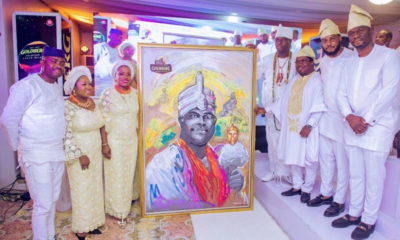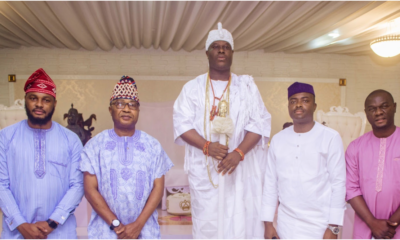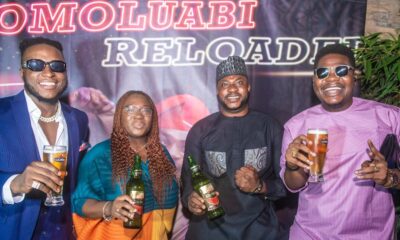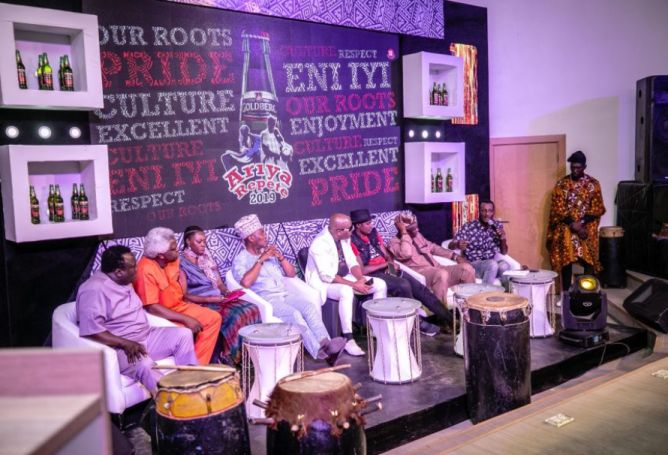Business
Why Goldberg’s Omoluabi TVC Is The Owambe Affair You Love To See
For years, Goldberg has celebrated the concept of the Ọmọlúàbí, which describes a person of absolute courage, hard work, and honour.

The talking drum is a cultural asset of the Yoruba people. Many people see the talking drum as just a musical instrument, but that’s not all the talking drum is. It is an instrument of non-verbal communication, hence the name. What is spoken through it could range from simple signals to elaborately coded messages as the talking drummer, by modulating pitch, can mimic the intonation, tone, stress, rhythm, and even emotion of human speech.
The talking drum is an hourglass-shaped musical instrument called the Gangan or Dundun in the Yoruba language, which translates to ‘sweet sound’. This instrument holds a very significant place in Yorùbá folklore and culture as the source of history, proverbs, poetry, and daily life.
For a talking drummer – traditionally referred to as onigangan or onilu – being able to tell stories non-verbally and with dexterity, requires practice. Consistency is what sets a great talking drummer apart from a mediocre one or a beginner. The number of hours he spends practising, the time he spends learning new ways to speak to the crowd, and the ability to improve the mood of people through his music is a trait only a master at the craft possesses.
Seeing how easy it is to forget the hard work that this level of consistency represents, Goldberg Lager Beer chose to remind us in its first TV commercial since 2012, just how much celebration the Onigangan deserves.
For years, Goldberg has celebrated the concept of the Ọmọlúàbí, which describes a person of absolute courage, hard work, and honour. While these virtues might seem far-fetched and the concept philosophical, this TVC brings it closer home through the life of an Onigangan.
Watching this master drummer tell a story that spreads joy to the crowd listening, causing them to dance to the rhythm of the song, you are reminded that he is only able to do this because he doesn’t cut corners in the pursuit of his dream. The road to his goals might be long and bumpy, but he is not dismayed by the challenge. He embraces each bump because that builds character. He goes where the music calls.
When he plays, he is respectful of the crowd he is playing for, extolling guest after guest, addressing elders with the right pronouns, just as an Ọmọlúàbí would while receiving his adulations with humility.
And when he is not at a colourful Yoruba event as displayed by Goldberg, the talking drummer, by virtue of his profession ensures that his traditions do not die off. He, like his ancestors and other drummers before him, replicates himself in another. Hence, the legacy of the talking drum outlives him.
That is who an Ọmọlúàbí is.












